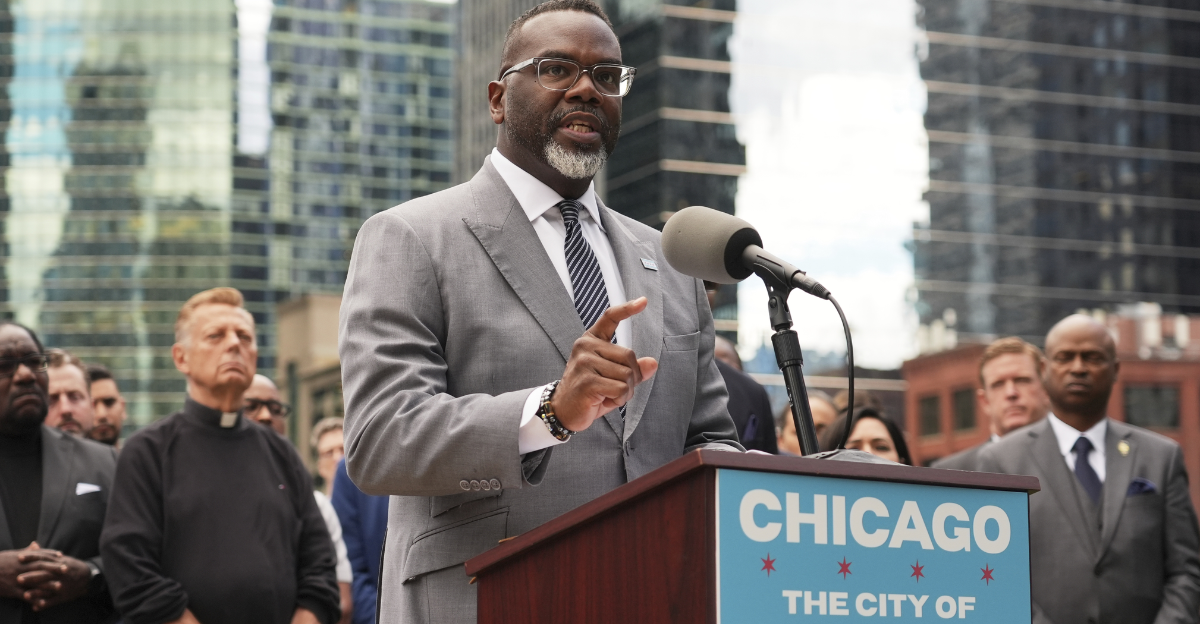
Chicago’s Labor Day weekend saw dozens shot across the city, with at least 58 people shot and 8 killed, according to local reports and police briefings. The violence drew national attention and renewed concerns about safety in the nation’s third-largest city.
Mayor’s Approval Rating Plummets as Violence Surges
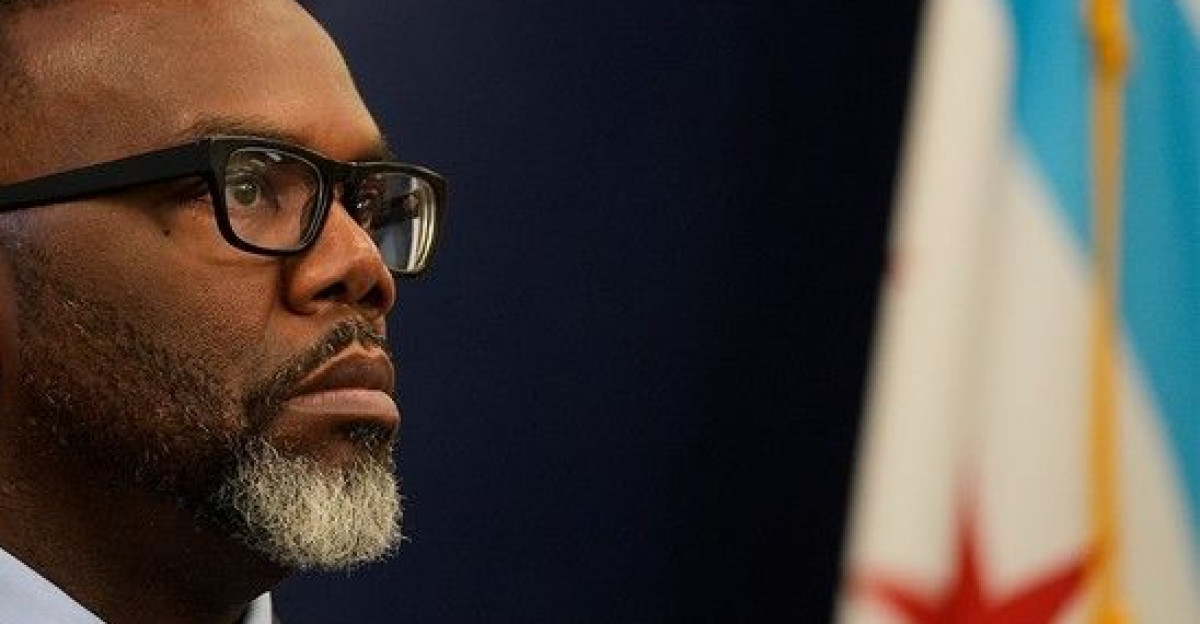
The weekend violence occurred despite Chicago recording a historic 33% decline in homicides during the first half of 2025, suggesting a troubling reversal of positive crime trends, according to Fox 32 Chicago. Bloomberg indicates Mayor Brandon Johnson’s administration, already struggling with a 26% approval rating, now faces mounting pressure as federal intervention looms over the city’s inability to maintain recent safety improvements.
Echoes of 1968 Riots Haunt Chicago Streets
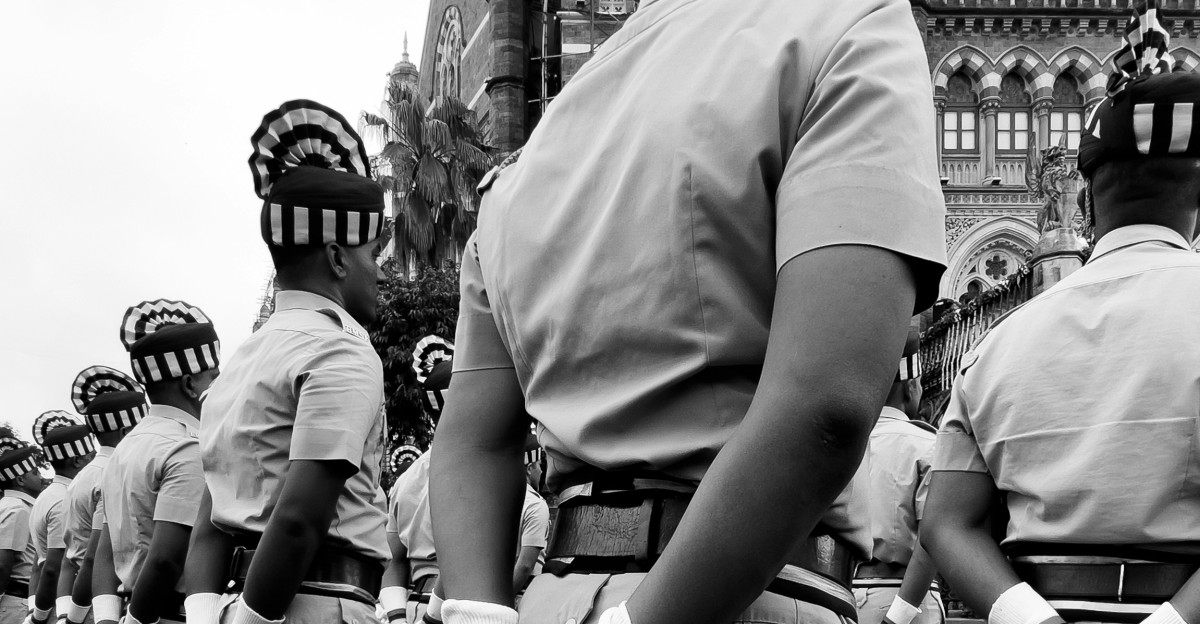
Federal military deployments in Chicago have historical precedent, notably during the 1968 riots and Democratic National Convention protests, which involved thousands of National Guard troops alongside Chicago police officers. More recently, the Guard was also activated during periods of unrest in 2020.
Trump Administration Targets America’s Third Largest City
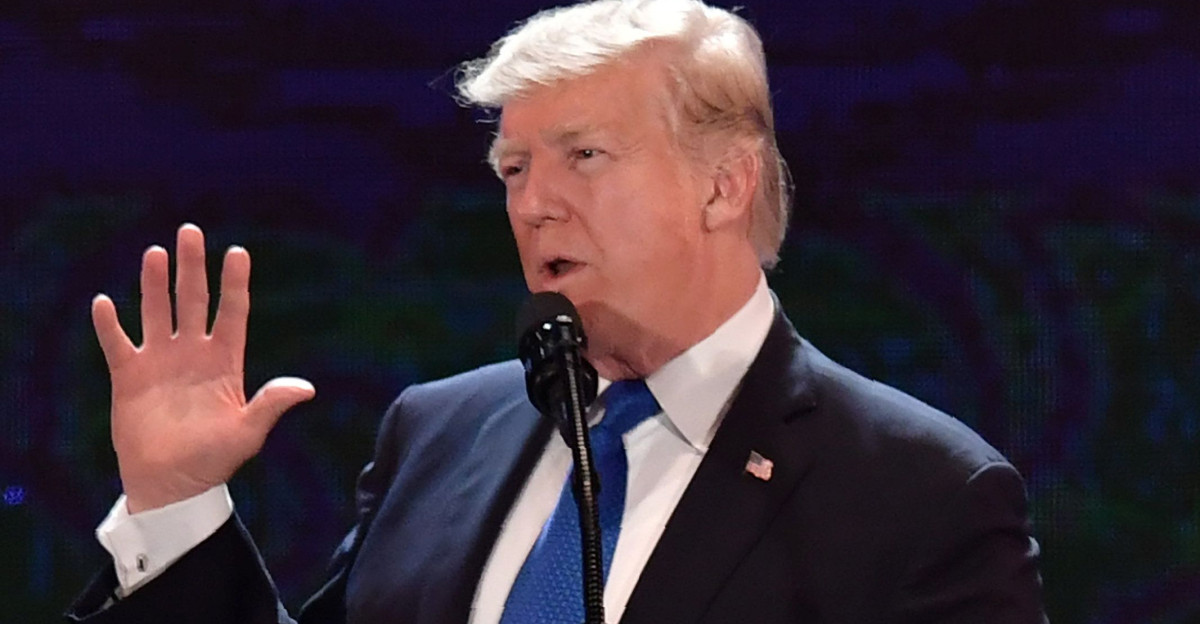
The Trump administration has focused on sanctuary cities like Chicago as part of its expanded immigration enforcement strategy, with former ICE director Tom Homan saying plans are “about to get a lot bigger,” Fox 32 Chicago reported. The Washington Post says Pentagon officials are reviewing options that could include use of Naval Station Great Lakes for logistical support, though no activation orders have been publicly issued.
Historic Executive Order Declares War on Federal Authority
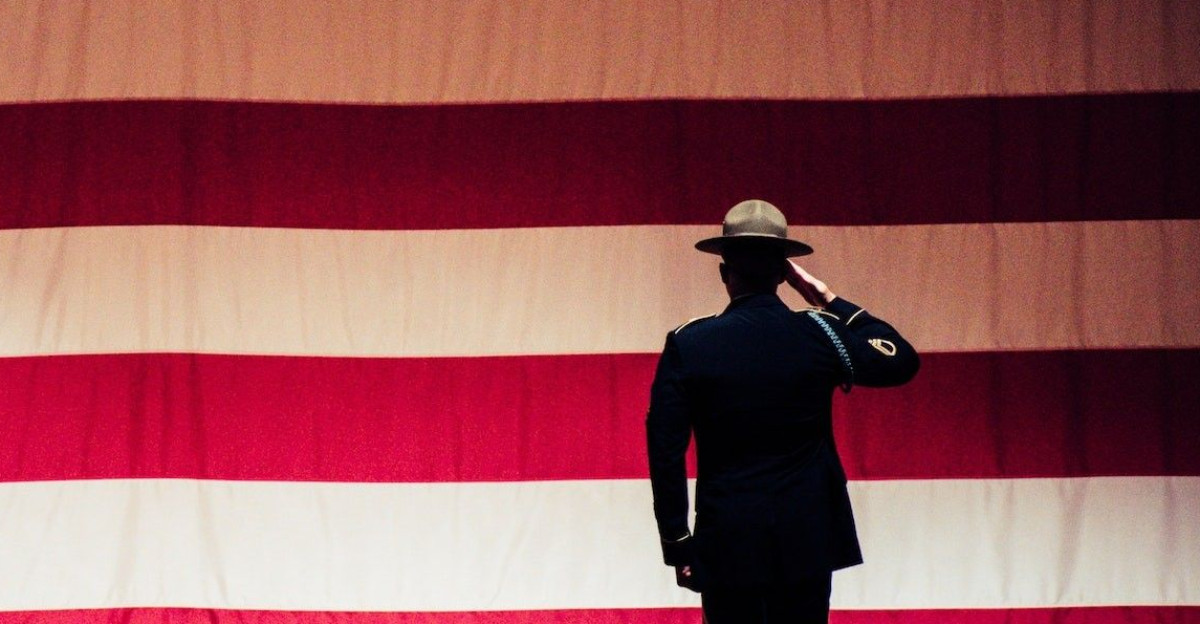
CBS Chicago reveals that Mayor Brandon Johnson signed the “Protecting Chicago Initiative” executive order on Saturday, August 31. The order explicitly directed city agencies to resist federal immigration enforcement and prohibited the Chicago Police Department from cooperating with federal agents. The comprehensive order represents the most extensive municipal resistance effort against federal intervention in recent U.S. history, establishing unprecedented barriers to federal law enforcement cooperation.
Illinois Governor Calls Federal Deployment an ‘Invasion’
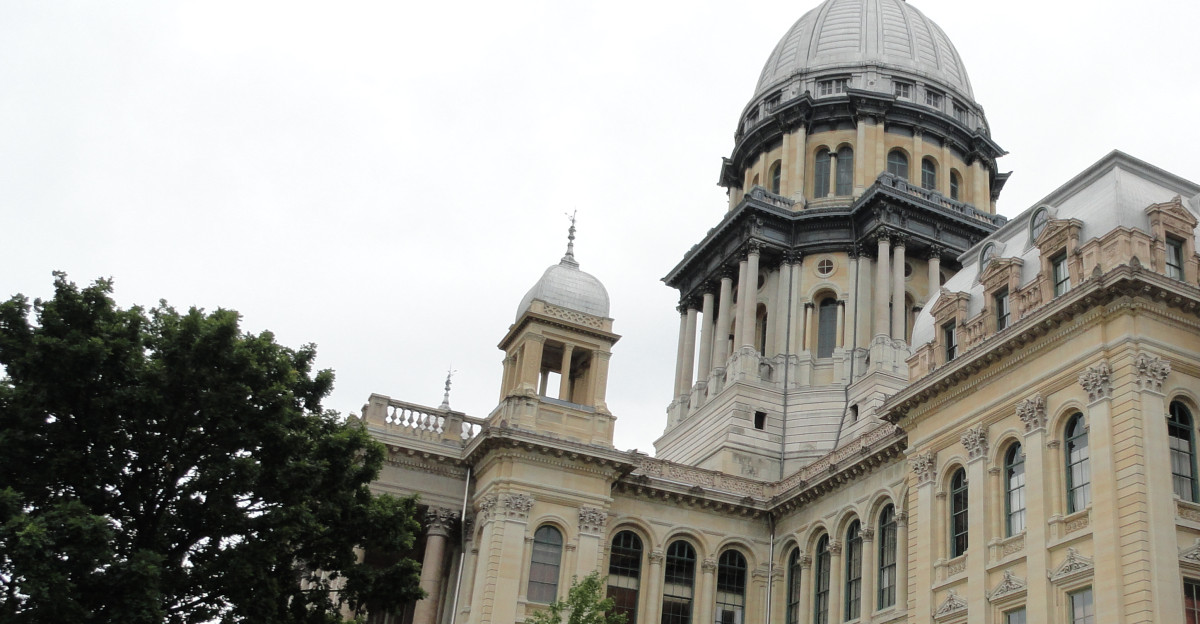
Illinois Governor JB Pritzker characterized potential federal military deployment as an “invasion,” telling CBS News, “It’s an invasion with U.S. troops, if they, in fact, do that.” According to Bloomberg, the governor, maintaining a 64% approval rating among Chicagoans, has pledged legal action against any unauthorized federal troop deployment, setting up a constitutional showdown between state and federal authority.
Residents Rally Against Federal Troops in Streets
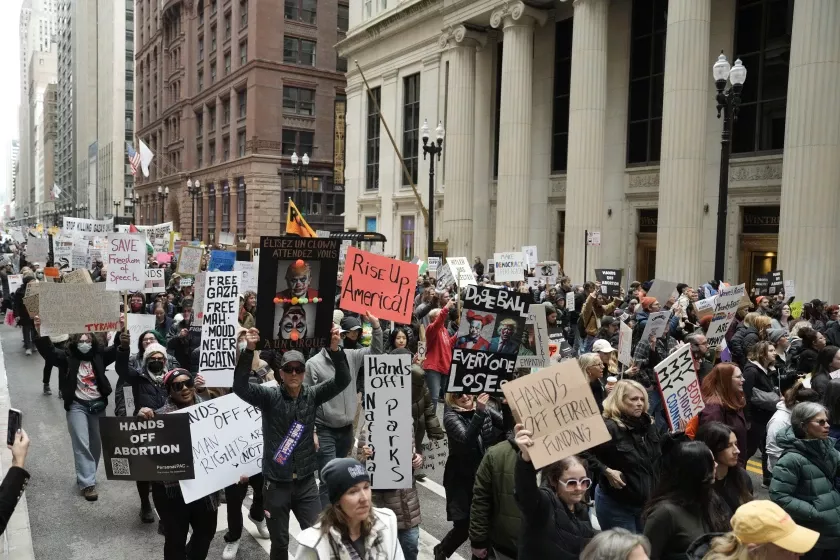
“We do not want to see tanks in our streets. We do not want to see families ripped apart,” Mayor Johnson declared during the executive order signing ceremony, CBS Chicago documented. Reuters confirms thousands of protesters gathered on Labor Day to demonstrate against the threatened National Guard deployment, chanting demands for federal authorities to respect local autonomy and immigrant rights.
Sanctuary Cities Become Trump’s Primary Targets
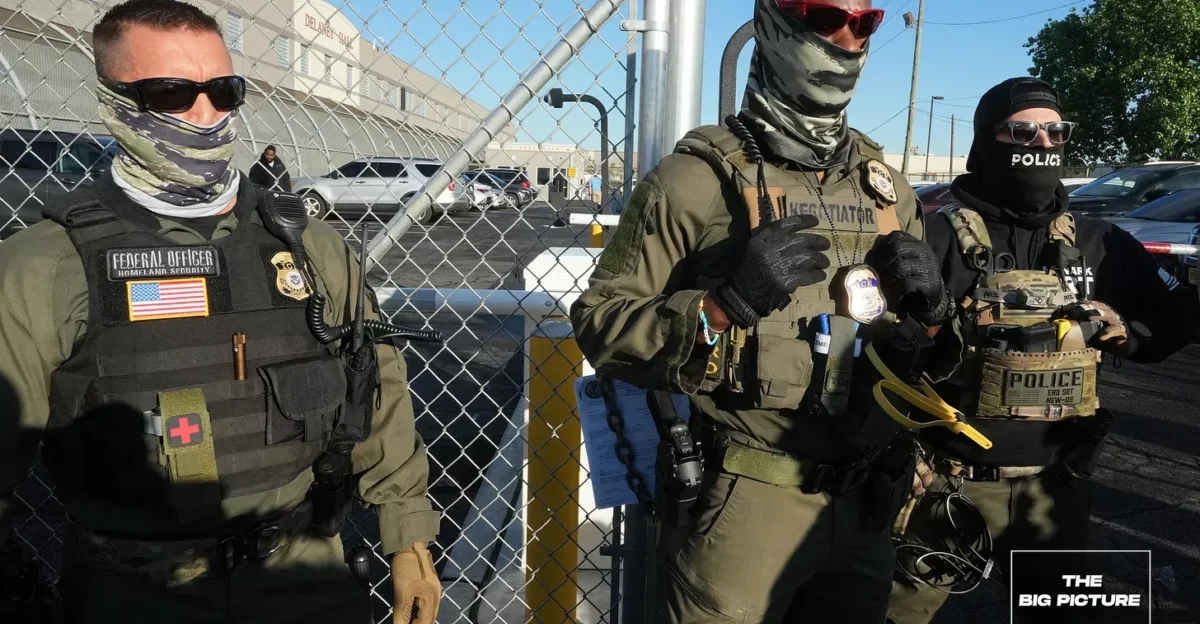
Tom Homan confirmed expanded ICE operations across five major sanctuary cities, including Chicago, New York, Los Angeles, Portland, and Seattle, as part of Trump’s mass deportation agenda, Newsweek reports. The New York Times reveals that the Department of Homeland Security has requested “limited logistical support” from Naval Station Great Lakes, approximately 35 miles north of Chicago, to serve as a command center for anticipated operations.
Constitutional Crisis Spreads Across Democratic Strongholds
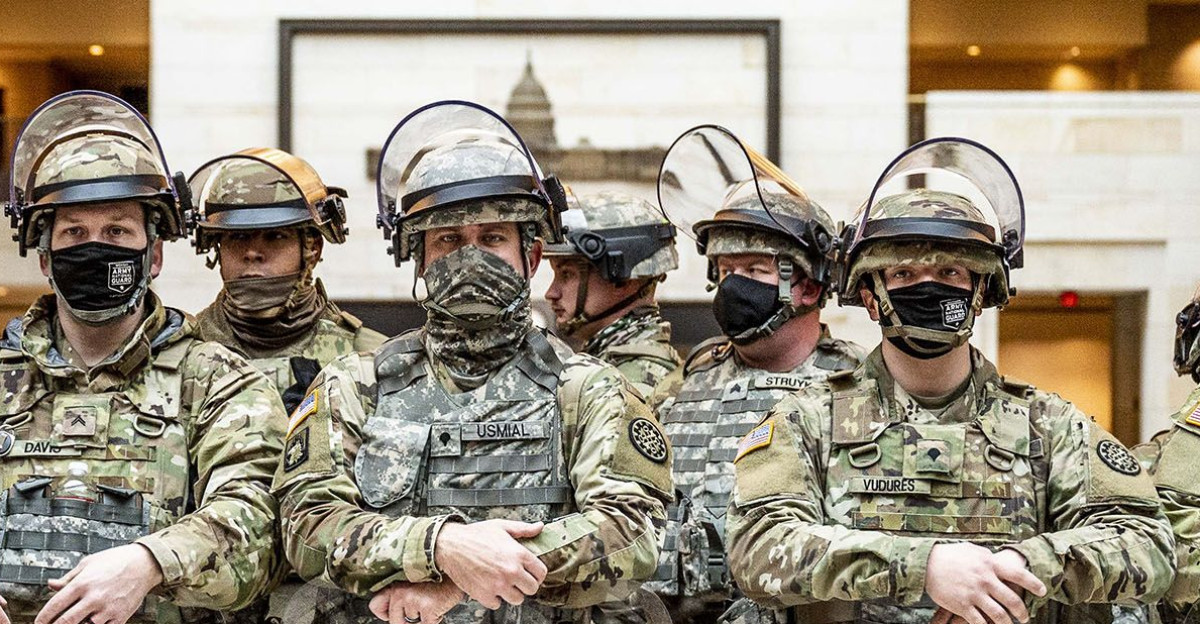
Chicago’s resistance follows similar confrontations in Washington, D.C., and Los Angeles, where National Guard deployments have sparked legal challenges and constitutional debates, the Associated Press notes. CNN analysis suggests the Trump administration’s strategy of targeting Democratic-led sanctuary cities represents a systematic approach to federal immigration enforcement, with each deployment testing the boundaries of presidential military authority.
Civil War Era Law Creates Modern Constitutional Dilemma

The Posse Comitatus Act of 1878 generally prohibits military enforcement of domestic laws, but allows presidential deployment during invasion, rebellion, or when unable to execute federal laws with regular forces. Legal experts tell the Associated Press that once National Guard units are federalized under Title 10, they become subject to these restrictions, creating potential constitutional violations in Chicago’s case.
City Council Members Question Mayor’s Strategy
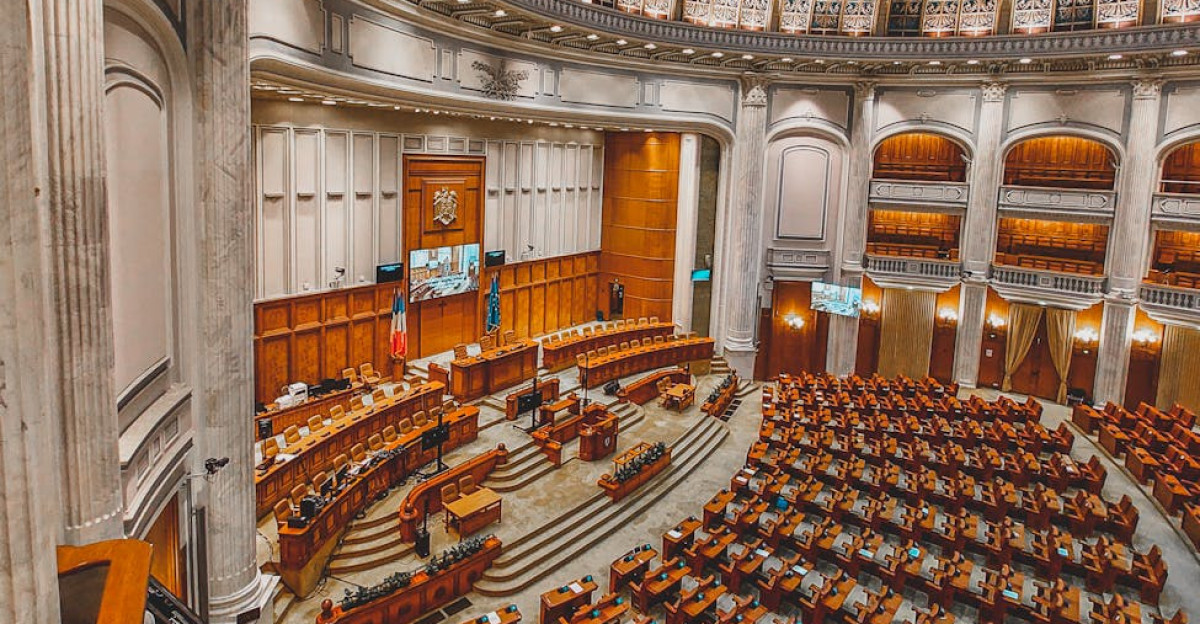
Mayor Johnson’s administration faces internal pressure as the weekend violence undermines his public safety messaging amid historically low approval ratings, the Chicago Contrarian reveals. ABC 7 Chicago sources indicate city council members privately express frustration over the administration’s inability to prevent the violent spike that potentially validates federal intervention arguments, creating political vulnerabilities within Democratic ranks.
New Mayor Takes Harder Line Than Predecessor
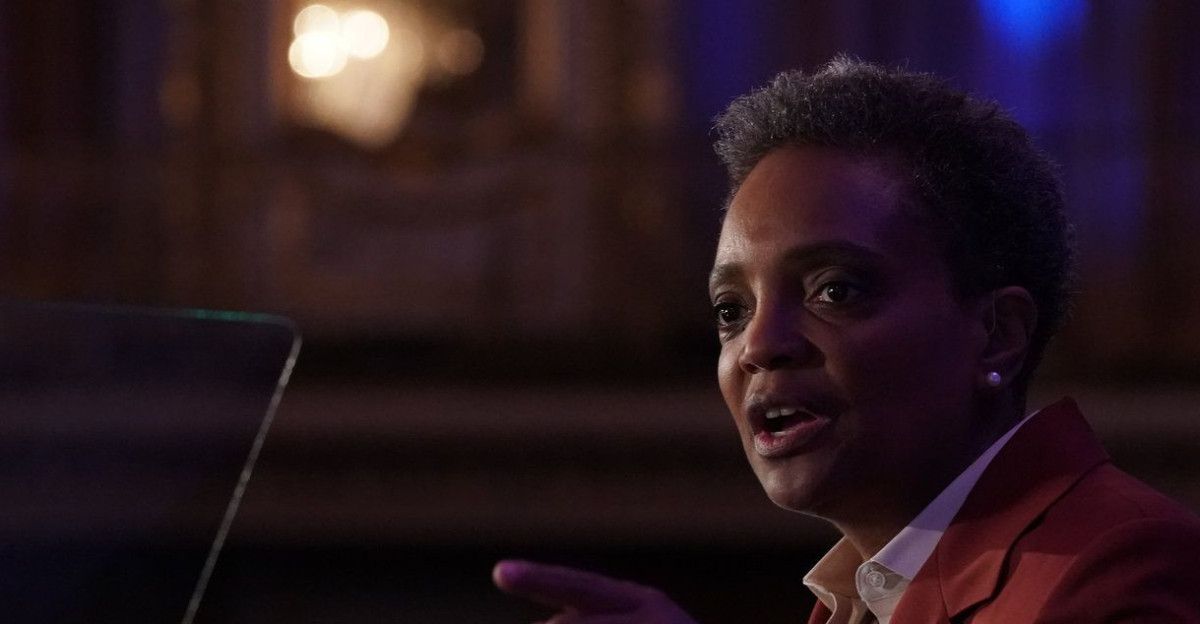
CBS Chicago notes that Johnson’s executive order represents a dramatic escalation from his predecessor, Lori Lightfoot, who requested National Guard assistance during the 2020 civil unrest after consulting with police leadership. The current mayor’s preemptive resistance strategy reflects a fundamental shift in Chicago’s relationship with federal authority, positioning the city as a test case for municipal defiance.
Legal Arsenal Prepared for Federal Confrontation
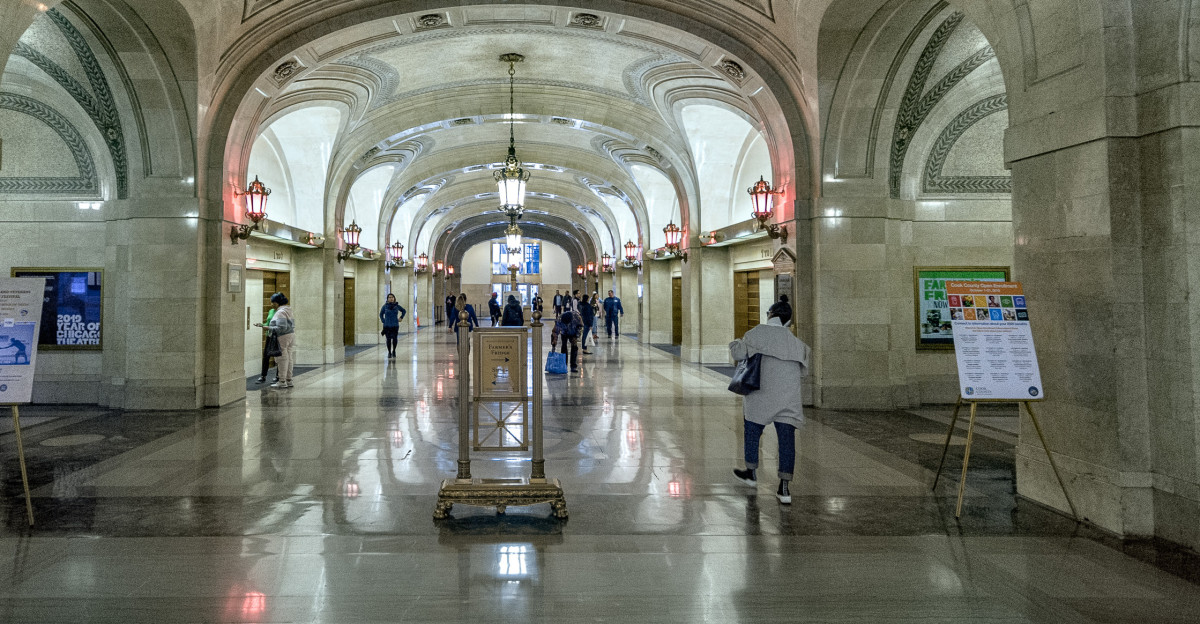
The “Protecting Chicago Initiative” establishes comprehensive protocols requiring federal agents to wear identification, use body cameras, and refrain from wearing masks during operations, CBS Chicago details. Al Jazeera reports Johnson’s order also directs the city’s law department to pursue “any and every legal mechanism” to challenge federal actions, preparing for prolonged litigation against the Trump administration.
Military Experts Question Deployment Effectiveness

Former Illinois National Guard General warns that federalized troops would be severely limited in law enforcement capabilities under the Posse Comitatus Act, questioning the operational effectiveness of Trump’s threatened deployment, CBS Chicago reports. Legal experts suggest to the Associated Press that the administration may be “attempting to navigate around” constitutional restrictions rather than directly confronting them through proper legal channels.
City Braces for Unprecedented Federal Showdown
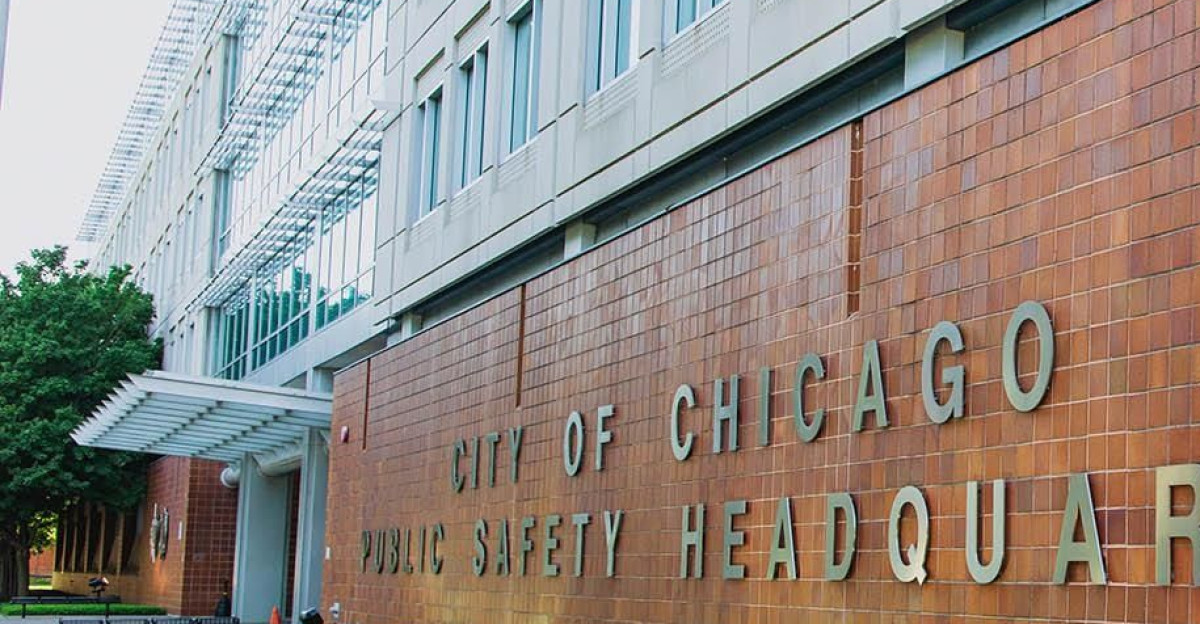
CNN analyzes the convergence of weekend violence and federal threats as an unprecedented test of Chicago’s sanctuary city status and municipal autonomy. Whether Johnson’s resistance strategy can withstand federal pressure while addressing legitimate public safety concerns will determine his political survival and the broader balance between local and federal authority.
States’ Rights Battle Could Reach Supreme Court
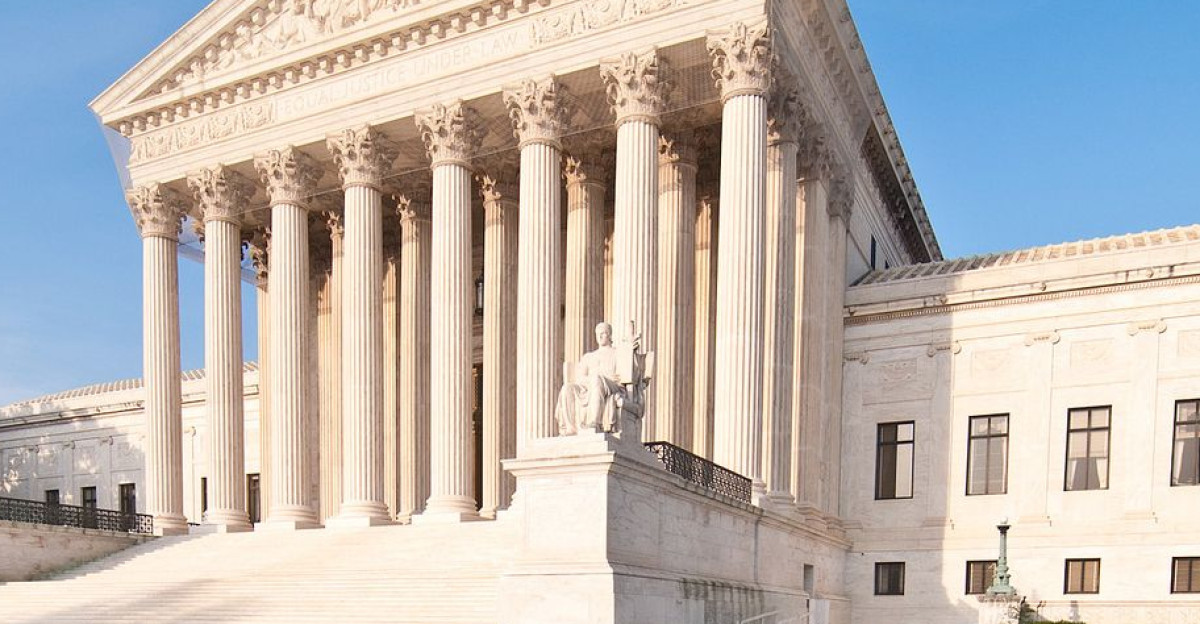
CBS Chicago confirms that Illinois officials argue that unauthorized military deployment violates the Tenth Amendment’s state sovereignty protections and exceeds presidential emergency powers. Reuters suggests Governor Pritzker’s threat to challenge federal action in court could establish a crucial precedent for state resistance to federal military intervention, with implications extending far beyond immigration enforcement to fundamental federalism principles.
International Community Watches American Democracy Test
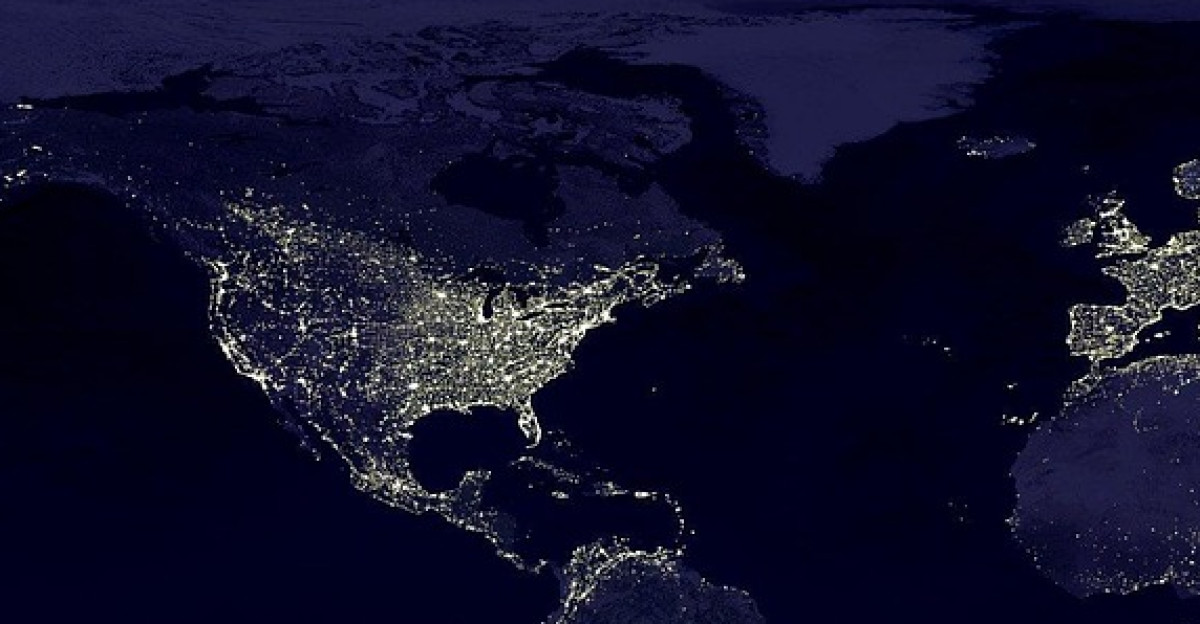
Al Jazeera reports that the potential militarization of American cities draws international attention to U.S. domestic governance, with foreign observers noting similarities to authoritarian tactics in other nations. Chicago’s resistance represents a democratic response to perceived federal overreach, potentially influencing international perceptions of American constitutional democracy and rule of law.
State Law Directly Conflicts with Federal Demands
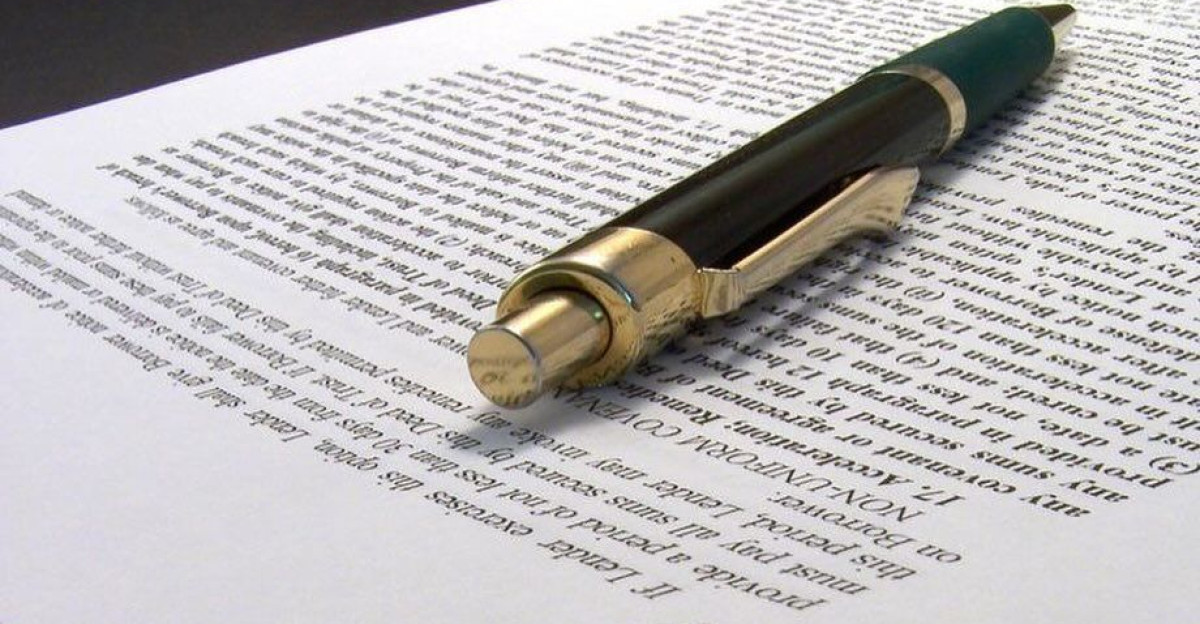
Fox 32 Chicago explains that the Illinois Trust Act prohibits local police cooperation with immigration raids unless criminal warrants are presented, creating a direct conflict with federal enforcement expectations. Legal challenges could clarify the scope of federal authority over state law enforcement agencies, with potential Supreme Court implications for balancing immigration enforcement and state police powers.
Immigrant Families Fear Community Safety Breakdown
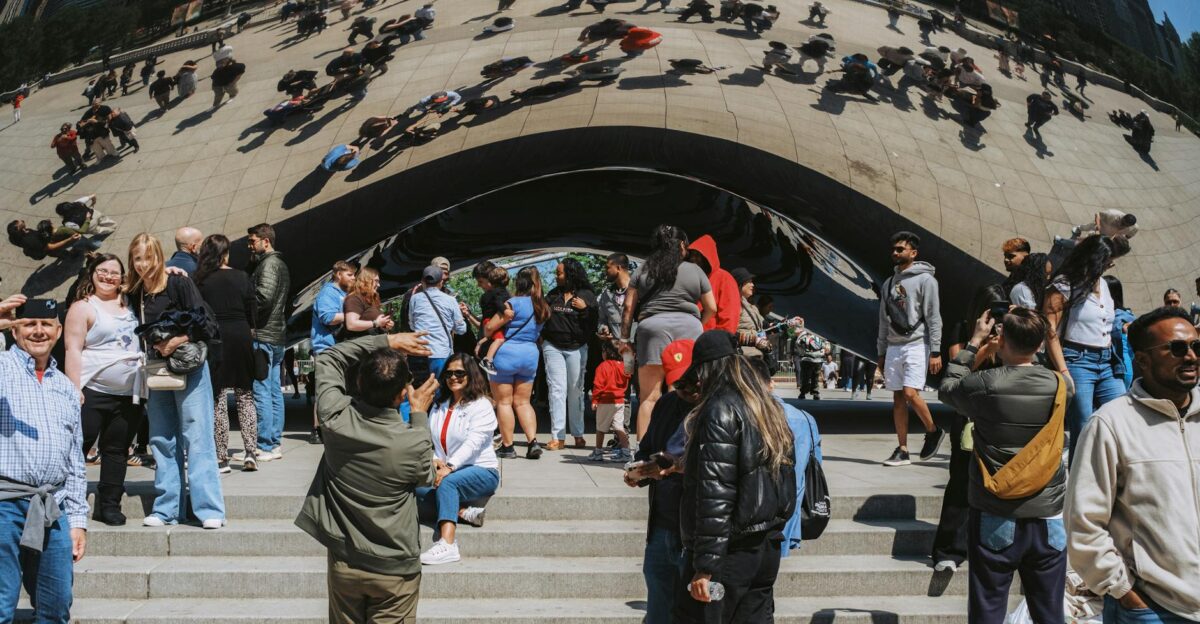
Chicago’s large immigrant population views the federal crackdown as an existential threat to community safety and family unity, fundamentally altering the relationship between residents and law enforcement, the New York Times documents. CNN analysis indicates the crisis reflects broader cultural tensions over American identity, immigration policy, and the role of sanctuary cities in protecting vulnerable populations from federal enforcement.
America’s Constitutional Limits Face Ultimate Test
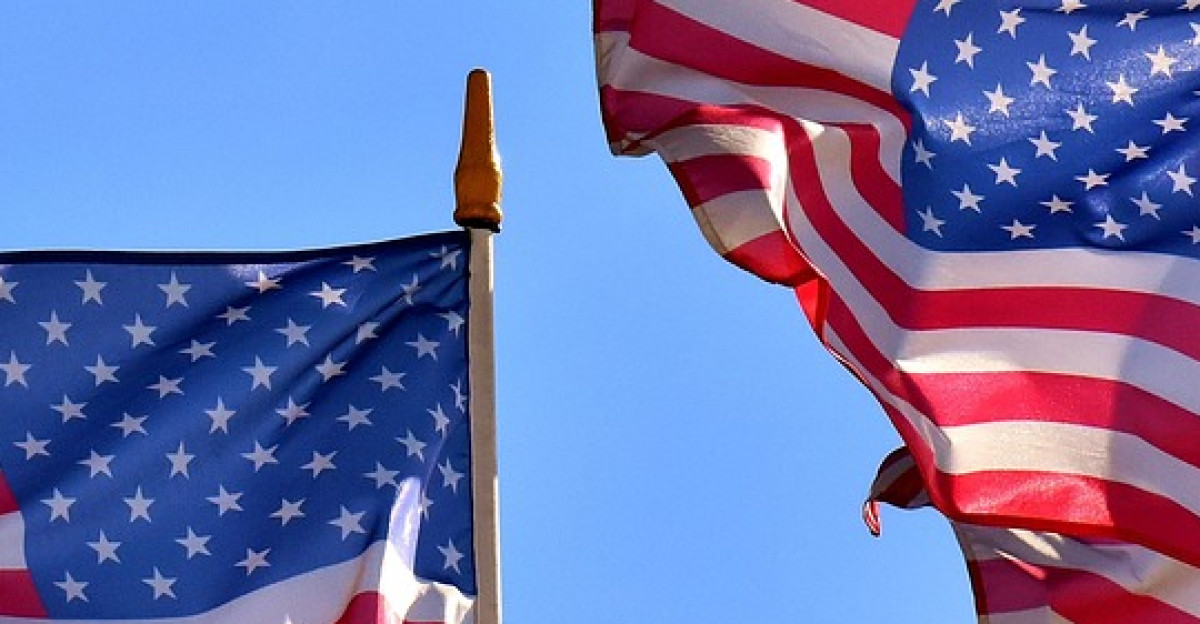
The Chicago standoff epitomizes the broader struggle between federal authority and local governance in American democracy, testing constitutional boundaries in ways not seen since the civil rights era, PBS NewsHour analyzes. Time suggests this confrontation will ultimately define whether municipal resistance can effectively challenge federal overreach or presidential emergency powers can override state and local autonomy in the modern era.